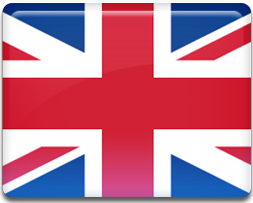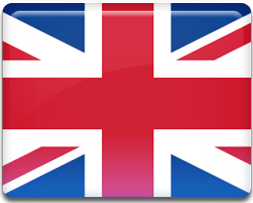
Canadian Immigration
Introduction
Canada is an immigration-dependent country because of its low birth rates and bone-chilling low temperatures. In the light of the same, it offers a wonderful opportunity for immigrants, specially from populous Asian countries, to immigrate and start a new life in Canada. It offers many immigrant-friendly programs to help one settle down in Canada, such as pre-arrival service and post landing services free of cost. HERE AND NOW will look into the complete process involved in immigration, including types of visas and its requirements.
How well are you informed on The Canadian Immigration Process ?
| Beginner | Intermediate | Advanced |
| I am just beginning to learn the process | I know until IELTS But I don’t know much about TEF | I know everything about Canadian Immigration I would like to improve my CRS through TEF |
Did you know there are more than 60 programs through which you can immigrate to Canada ?
Here is a list of few popular programs through The Express Entry :
- FSW ( Federal Skilled Worker Program ) : Immigrate as a skilled worker
- Family sponsorship: Sponsor your relatives, including your spouse, partner, children, parents, grandparents, and others to immigrate
- Provincial nominees: Immigrate by being nominated by a Canadian province or territory
- Quebec-selected skilled workers: Immigrate as a skilled worker in the province of Quebec
- Atlantic Immigration Pilot: Immigrate by graduating from a school or working in New Brunswick, Prince Edward Island, Nova Scotia, or Newfoundland and Labrador
- Caregivers: Immigrate by providing care for children, the elderly or those with medical needs, or work as a live-in caregiver
- Start-up Visa: Immigrate by starting a business and creating jobs
- Self-employed: Immigrate as a self-employed person in cultural or athletic activities
- Rural and Northern Immigration Pilot: Smaller Canadian communities supporting their local economy through immigration. Pilot opens to permanent resident applicants later in 2019.
- Agri-Food Pilot: Immigrate by working in specific agri-food industries and occupations
- Refugees: Immigrate as a refugee or become a sponsor
Immigration via Federal Skilled Worker (FSW)
Federal Skilled Worker is a legacy program via which most successful first generation immigrants got to Canada. It is a point-based immigration system, Designed to be competitive and conclusive. Being fair in its inception, It allocates points based on one’s educational qualifications, language skills and adaptability to the Canadian job market.
Immigration via Federal Skilled Trades (FST)
Federal Skilled Trades is again a similar immigration program like FSW. But, It sports a different set of individuals, Namely, Unskilled and Semi-skilled worked, In contrary to FSW, Which imbibes highly-demanded skilled workers for the global market. As far as the point calculation is considered, It is way similar to skilled worker category with some aberrations in considerable experience and National Occupation Classification (NOC) differentiation.
Immigration via Investor Program (IIVC)
HERE AND NOW also offers two gigantic immigration programs attracting most of the work force to the obscure North American country, Investor program brings foreign exchange to the bubbling economy, which in turn creates local jobs and provides a channel of business opportunities.
As a good-will gesture, Canada provides Permanent Residency to huge investors to facilitate the ease of doing business and generating tax revenue to the government.
The FSW (Federal Skilled Worker Program) is the most common and widely known program through which people immigrate to Canada because this program allows the immigrants to avail most of the benefits of getting a Canadian PR.
Eliglibity :
The Immigration, Refugees and Citizenship Canada department invites applicants from all around the world based on their CRS – Comprehensive Ranking System.
What is CRS and how is it calculated ?
In order to rank immigration candidates, the Canadian government developed a merit-based points system that assigns a score to each candidate in the Express Entry pool. This points system is called the Comprehensive Ranking System (CRS), and the score assigned to each candidate is called the CRS score. The points are alloted based on the candidate’s age, work experience, English Level and many more factors.
The CRS has a total of 1200 points out of which 600 comes under Core / human capital factors (500 points), Skill Transferability factors (100 points) and Additional / (600 Points).
Core / human capital factors: (500 Points)
| Factors | Spouse | Without Spouse |
| Age | 100 (upto to 29 years) | 110 |
| Education | 140 / 10 (Spouse) | 150 |
| 1st Official Languages Proficiency | 32 each part X 4 parts = 128 / 20 (Spouse) | 34 X 4 = 136 |
| 2nd Official Languages Proficiency | 6 X 4 parts = 22 max. | 6 X 4 = 24 |
| Canadian Work Experience | 70 / 10 (Spouse) | 80 |
Skill Transferability factors ( 100 points)
| With good/strong official languages proficiency and a post-secondary degree / With Canadian work experience and a post-secondary degree | 50 |
| With good/strong official languages proficiency (Canadian Language Benchmark [CLB] level 7 or higher) and foreign work experience / With Canadian work experience and foreign work experience | 50 |
Additional / (600 Points)
| Factors | Points |
| Brother or sister living in Canada (citizen or permanent resident) | 15 |
| French language skills (Min. CLB 7) | 50 |
| Post-secondary education in Canada | 30 |
| Arranged employment | 200 |
| PN nomination | 600 |
CRS = Core/human capital + Transferability factors + Additional points = Grand total – Maximum 1,200 points
Past cut-off history :
| Draw # | Date | # of Invitation Issued | Cut-off |
| 169 | 09/12/2020 | 5000 | 469 |
| 168 | 25/11/2020 | 5000 | 469 |
| 167 | 18/11/2020 | 5000 | 472 |
| 166 | 05/11/2020 | 4500 | 478 |
| 165 | 14/10/2020 | 4500 | 471 |
| 164 | 30/09/2020 | 4200 | 471 |
| 163 | 16/09/2020 | 4200 | 472 |
| 162 | 02/09/2020 | 4200 | 475 |
| 161 | 20/08/2020 | 3300 | 454 |
There has not a EXPRESS ENTRY Federal Skill Workers (FSW) draw since January 2021 due to the Covid-19 situation.
But it is positive that the draws will restart from the fourth quater of 2022 and we can expect the cut-off score can be anywhere around 485-495. Let us assume two of the most usual scenarios of the CRS calculation.
Best Case Scenario
Let us consider a candidate who is married, 27 years old, has a B.E. + PGD, 3+ years of work experience and an IELTS score of CLB 10.

100 points

128 points

100 points

136 points
- Now the candidate’s CRS score is 100 + 128 + 100 + 136 = 464
Common Case Scenario
Let us consider a candidate who is married, 33 years old, has a B.E. + PGD, 3+ years of work experience and an IELTS score of CLB 9.

80 points

128 points

100 points

124 points
- Now the candidate’s CRS score is 80 + 128 + 100 + 124 = 432
